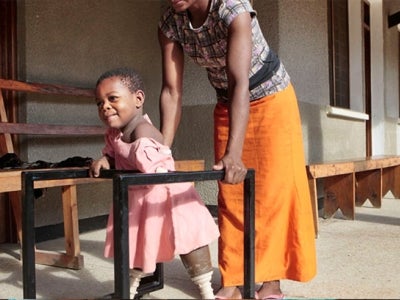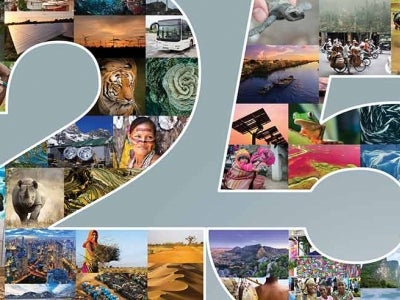
The government's expectation for the future is that GEF will have a significant biodiversity and climate change portfolio in the country to address the major drivers of biodiversity loss and the enormous climate change challenges facing the country, manifested in encroaching desertification from the northern parts of the country southwards, alarming deforestation, land degradation, extreme weather patterns and many other impacts.
By David Batali Oliver, GEF, GEF Operational Focal Point, South Sudan
The GEF has played an important role in offering South Sudan the opportunity to join in the global efforts to address such environmental concerns as the climate change and biodiversity loss hat adversely affect our planet Earth.
South Sudan is the newest country in Africa, only attaining its independence on 9 July 2011, when it seceded from Sudan following a referendum. When it became an independent country it had hardly any participation in multi-lateral environmental agreements. The country, through the Ministry of Environment, swiftly embarked on the process of acceding and becoming a party to the three Rio Conventions - the United Nations Framework Convention on Climate Change, the United Nations Convention on Biological Diversity and the United Nations Convention to Combat Desertification. The UNDP South Sudan Country Office in Juba played a major role in raising awareness about the Global Environment Facility and the urgent need for South Sudan to accede to these Conventions and the Government is very grateful to it.
Following South Sudan becoming the 183rd member of the Global Environment Facility in May 2013 and its accession to the Rio Conventions, the GEF provided funds for implementing the Enabling Activity projects - the National Adaptation Programme of Action in Response to Climate Change, the National Biodiversity Strategy and Action Plan, the National Capacity Self-Assessment for Global Environmental Management in South Sudan; and the Initial National Communication as well as the Biennial Update Report under the United Nations Framework Conventions for Climate Change. To date the outputs of this include the NAPA document, the National Biodiversity Strategy and Action Plan and the Fifth Biodiversity National Report. Meanwhile, work has started on the National Capacity Self-Assessment, the Initial National Communication and the Biennial Update Report and is progressing very well. South Sudan has been allocated USD $ 6 million for the current GEF funding cycle, effective from 1 July 2014. The government has committed the money to a project on building capacity to reduce the illegal wildlife trade and enhance the management of protected areas in the country with UNEP as the implementing agency as part of its efforts to address the challenge of widespread poaching and the illegal trade in wildlife products in the country, coupled with the need to contribute to global impacts and benefits.
The government's expectation for the future is that GEF will have a significant biodiversity and climate change portfolio in the country to address the major drivers of biodiversity loss and the enormous climate change challenges facing the country, manifested in encroaching desertification from the northern parts of the country southwards, alarming deforestation, land degradation, extreme weather patterns and many other impacts. It is very appreciative and grateful to the GEF for being considerate and treating South Sudan specially and is looking forward to more GEF support so as to be able to play a significant role in addressing the environmental issues threatening the livelihood of its rural population, which constitutes 80% its people. South Sudan is privileged to have this 25th anniversary celebrated when it has joined the GEF family.


